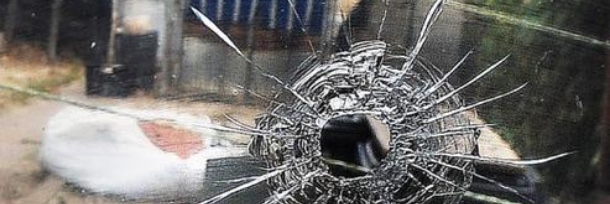They built the World as a study in iconography: the Mountains, the Forest, the Highway. Each place was a template any visitor could imprint their memories or preconceptions on, their ideas of it giving the barebones of the construction details and meaning.
But most important of all the templates, there was the City. A place of residence, commerce, government, densely populated with people of all different stripes, and made for each one of them. If you expected to see Red Square, take a turn and the plaza would lay itself out before you. As you crossed the river, any citizen might do so on the Galata or the Pont National. Walking there you might see Big Ben or the Petronas Towers.
Like all templates, though, it required a default state, one in which it reverted should the visitor have no expectations. And this was the one that Thomas strolled down, in the Financial District, with clean streets and signs posted vertically along the long rise of buildings, advertising everything from the restaurant inside, to the bank, to a new cellular phone bundle. He knew he could walk a few miles, or take the subway, and end up in a less savory part of town, but he had decided to start here. “It’s all so remarkable,” he wondered at it.
“You can choose to reside here or in any other residential edifice.” The voice might have belonged to any one of the people moving around Thomas, getting about their busy day as he stared up at the skyscrapers. However, it belonged to none of the passersby. “By depositing your funds in the CrossTrek bond you’ll be provided an allowance in which to live however long you wish to reside in the City.”
“I suppose it’s lucky I sold the condo before –” Thomas stopped, not wanting to think about his erstwhile home or the unfortunate family he had sold it to, both having given way to the elements not long ago.
“Yes. Nothing like that will happen here. All climate is controlled and tuned to pre-industrial standards.” A woman, neatly dressed in business suit, smiled at him as she passed. Thomas wondered if she were an occupant like he might be, or if the human gesture had been queued up by the system to accompany its reassuring words. “Of course, there will be inclement weather, but nothing like what you’ve experienced.”
Thomas thought about how so much in recent history had washed away, taking with it some of humankind’s greatest accomplishments, not the least of which were some of the cities this artifice reflected. “And my…” Thomas gestured up and down, indicating his own torso, knowing the system would understand.
“You will be safely interred in our Vault®. You’ll be able to live here and eat, drink, smoke or consume as you see fit with no ramifications for your overall health.”
Thomas thought about that: Living without consequence. Perhaps that’s all humans were fit to do.
See the author’s published work here.
Read More »

























